QuickBooks Overview & Magento 2 Integration
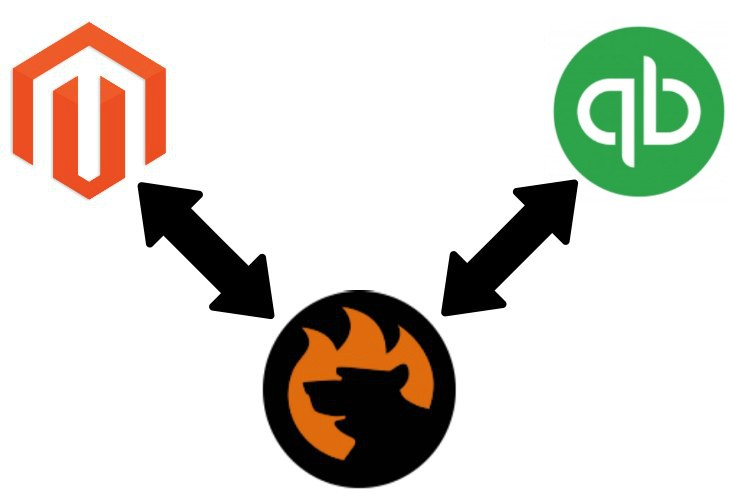
Today, we’ve prepared an overview of a set of smart business tools for the world’s hardest workers – small businesses and freelancers. The following article sheds light on – accounting software designed to track expenses, create custom invoices, run reports, etc. Below, we explore the key features of the platform and its pricing plans. Besides, there is a section dedicated to the Magento 2 QuickBooks integration based on Improved Import & Export. Let’s see what perks the system provides.


Meet QuickBooks integration add-on of Improved Import and Export extension for Magento 2. With the add-on you can connect your QuickBooks accounting software with Magento 2 via API. The add-on features two-way synchronization of:
- Inventory
- Customers, shipping and billing info
- Orders and prices
- B2B entities
For more information about QuickBooks Magento 2 connector visit the add-on product page.
Table of contents
QuickBooks Features
The following aspects of the Magento 2 QuickBooks integration dramatically improve your daily routine related to accounting. The platform automates and simplifies various routine processes, providing you with more spare time every day. As a result, you can spend this precious resource on more valuable activities.
Cloud Accounting
While many technologies are already available in the cloud, lots of services rapidly transit their offers to this deployment method since it offers exceptional flexibility, accessibility, and productivity. And the QuickBooks platform is not an exception. Due to the cloud accounting functionality, you can access your account on your computer, mobile or tablet. Manage your business and stay organized anytime, anywhere with the Magento 2 QuickBooks integration.
Expenses Tracking
Expenses tracking is another strong point of QuickBooks. And due to the Magento 2 QuickBooks integration, it is possible to leverage some advanced features of the platform for your e-commerce business. The platform lets you record expenses for tax time, but it is not the strongest competitive advantage in the field of costs tracking. What makes QuickBooks really valuable is that you can use the dedicated mobile application to photograph and save receipts. Leverage the QuickBooks Online mobile app to do that.
Business Forms Management
The Magento ecosystem offers multiple extensions designed to create and customize invoices. QuickBooks provides the same functionality. The platform lets you create professional business forms including invoices, sales receipts, and estimates. You can apply various customizations and send them in minutes. Due to the Magento 2 QuickBooks integration, all docs can be synchronized.
Accounting Reports
It is hard to imagine an accounting system that offers no reports. Designed to provide you with in-depth insights, QuickBooks offers comprehensive dashboards where you can view most business metrics instantly. Consequently, you can always control how your business is performing. Note that reports and dashboards are customizable so that you can tailor their output according to your preferences, needs, and requirements.
Cash Flow Management
Advanced cash flow management capabilities is another substantial improvement you will get after the Magento 2 QuickBooks integration. The accounting system lets you specify vendor bills within the system and pay them when they are due. Another important feature is the ability to leverage recurring payments. Create a schedule for them to automate multiple routine processes and save time.
Advanced Security
To make your data secure, the QuickBooks accounting platform provides automatic backups daily. Thus, you won’t lose any precious data. Note that all information is 128-bit SSL encrypted. Thus, the platform ensures your data is safe.
Top-Notch Support
If you need help regarding your QuickBooks account, the platform lets you contact the dedicated support team. It is available five days a week: Monday to Friday from 7.00 am to 12.00 am GMT+8. Get answers to your questions and information on running your business with QuickBooks. If you need support regarding the Magento 2 QuickBooks integration, you can find it here.
QuickBooks Pricing Plans

The QuickBooks platform offers three pricing plans: Simple Start, Essentials, and Plus. Let’s explore each one:
- Simple Start. It is a basic plan that starts from $15 per month. It includes such features as sales, expenses, and profits tracking, invoice management, sales tax management, support for mobile and desktop devices, etc. The plan is designed for a single user and an accountant.
- Essentials. You can get QuickBooks Essentials for $23 per month. This plan includes the ability to track sales, expenses, profits, and sales tax, manage invoices, work on mobile and desktop devices, transact in multiple currencies, as well as generate sales quotes. Up to three users and an accountant can get access to the platform.
- Plus. The Plus plan starts from $31 per month. It also offers tracking capabilities for sales, expenses, and profits. Besides, you can manage invoices, sales tax, and bills, generate sales quotes, track inventory, create purchase orders, monitor profitability, etc. Support for multiple devices and currencies is provided as well. The plan offers access to the system for up to 25 users and an accountant.
It is necessary to mention that all plans offer free mobile applications, robust reporting capabilities, accountant access, free support, data encryption, and a free trial for 30 days. Also, note that price may vary depending on your region. Choose a plan before running the Magento 2 QuickBooks integration.
Magento 2 QuickBooks Integration

Magento 2 QuickBooks Integration allows transferring your products, customers, and orders between your e-commerce store and the accounting system. As mentioned above, it can be based on the Improved Import & Export Magento 2 extension and its QuickBooks Integration Add-On. Let’s take a look at the core features of the module.
Features
- Income Tracking. All income from your Magento 2 website can be tracked in QuickBooks.
- Advanced Mapping:
- Map invoices to share them between Magento 2 and QuickBooks;
- Map tax rates to share them between Magento 2 and QuickBooks.
- Advanced Synchronization:
- Sync products between Magento 2 and QuickBooks;
- Sync customers between Magento 2 and QuickBooks;
- Sync orders between Magento 2 and QuickBooks;
- Sync invoices between Magento 2 and QuickBooks;
- Sync sales receipts between Magento 2 and QuickBooks.
- User-friendly setup, configuration, and interface.
- Cost-effective solution that lets you cut the cost of labor and operations.
- Seamless and automated data transfer between the two systems.
- Support for multiple stores and languages.
Magento 2 QuickBooks Integration Case Study
Let’s explore several use cases for the Magento 2 QuickBooks integration on the basis of Improved Import & Export.
Income Tracking
With our extension, you can easily track income from your e-commerce website in QuickBooks. The extension automatically updates incomes to your profit and loss statement according to a schedule or when a specific event happens (e.g. when your invoice is paid in Magento 2).
Payment Methods Mapping
Another opportunity related to the Magento 2 QuickBooks integration is related to payment methods. You can easily map ones used in Magento 2 to QuickBooks Invoices. Thus, it is possible to keep track of different payment methods popular among your customers in your Magento 2.
Tax Rates Mapping
The Improved Import & Export module provides the ability to map tax rates of Magento 2 orders to QuickBooks. Thus, you ensure that tax calculation in Magento 2 and QuickBooks are correct. Besides, it is possible to synchronize QuickBooks-compliant tax codes from Magento 2 to your accounting system.
Product Synchronization
You can also use our module to transfer products between Magento 2 and QuickBooks. It is possible to export data from your Magento 2 store according to a schedule or when a new product is created. Furthermore, you can send product updates automatically when you change the appropriate information in the Magento admin with the Magento 2 QuickBooks integration.
Customers Synchronization
Another opportunity provided by the Improved Import & Export Magento 2 extension is related to customers. You can freely sync them between Quickbooks and your e-commerce website. When a customer is created in Magento 2, the module exports data to your QuickBooks account. If customer information is modified, the update is also provided to the accounting platform.
Orders Synchronization
Orders can be easily transferred from Magento 2 to QuickBooks automatically with our module. When a customer buys products and services in Magento 2, a new Unpaid Invoice is created in QuickBooks. Note that changes applied to orders are transferred to the accounting system as well as a part of the Magento 2 QuickBooks integration.
Invoices Synchronization
When a customer pays for an order successfully, the Improved Import & Export extension transfers this information to QuickBooks to create a new invoice there. Besides, the plugin provides the ability to move changes applied in Magento 2 to QuickBooks. And you can freely synchronize payment methods and tax codes from Magento 2 to QuickBooks.
Other Opportunities
The Improved Import & Export extension provides the following opportunities for the Magento 2 QuickBooks integration:
- Choose what entities to synchronize: products, customers, orders, invoices, credit memos, etc;
- Enable automated data transfers based on schedules;
- Enable automated data transfers based on events (e.g., an order was placed);
- Map Magento 2 attributes to ones used in QuickBooks to synchronize the two systems within a few clicks with presets.
QuickBooks API
We provide the ability to connect your Magento 2 website to QuickBooks using API. Being an open platform, the Quickbooks Online API enables developers to integrate with rich financial and transactional data through REST-based APIs. But you don’t need to be a coder to leverage this opportunity: we’ve already done everything for you. Although the Quickbooks Online API is designed to be easy to use, the related development is usually complex, challenging, and frustrating. But you can avoid all the headaches connecting Magento 2 to QuickBooks with Improved Import & Export. Let’s explore the extension’s features to find out how it simplifies the Magento 2 QuickBooks integration.
Improved Import & Export Magento 2 Extension Features
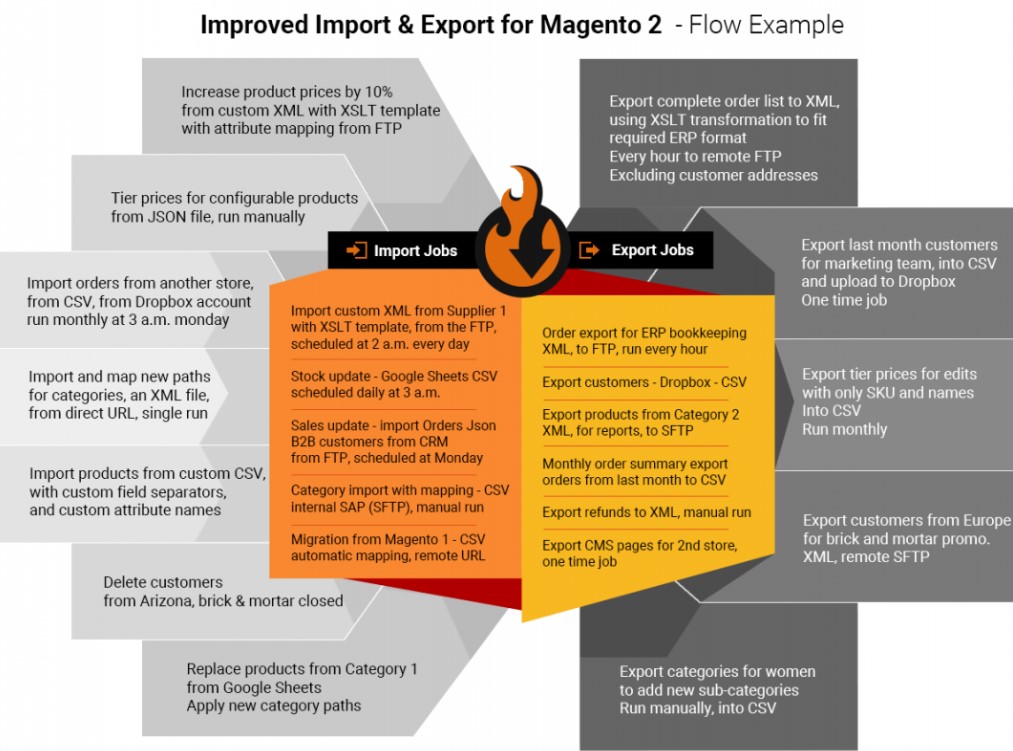
Now, when you are familiar with the main directions of the Magento 2 QuickBooks integration, we’d like to draw your attention to the Improved Import & Export features that simplify the data synchronization between the two platforms. Our module completely revamps the default import and export functionality of the Magento 2 so that you can avoid many issues associated with its built-in tools, which don’t let you do the following things:
- Establish API connections;
- Automate data transfers via cron or triggers;
- Mapp attributes.
In addition to that, they cannot import all entities used in Magento 2 or QuickBooks. Therefore, you have to repeat numerous processes every time an update is required; and since the Magento 2 QuickBooks integration requires multiple updates per day, you have to waste lots of time.
Luckily, the Improved Import & Export lets you transfer all information from Magento 2 to QuickBooks and back automatically: different external attributes and their values can be matched to ones used internally, multiple API connections – leveraged in the integration, and all entities – imported/exported! As a result, you effortlessly synchronize QuickBooks and Magento 2.
Automated Import & Export
The QuickBooks Magento 2 integration is a continuous process that requires advanced automation. And the Improved Import & Export provides the ability to avoid daily duties related to data transfers by allowing you to automate data transfers in two different ways: via schedules and event-based triggers.
Schedules
Schedules are the most popular way of automation in different data transfers including the Magento 2 QuickBooks integration. The flow of information between the two systems can be established based on cron. You specify a time interval and the system import/exports updates according to it. Our module lets you create fully independent import and export jobs with several different options:
- custom intervals,
- customizable predefined update schemes,
- profiles with no schedules (which are suitable for maintaining such tasks as migration to Magento 2),
- and asynchronous data transfers (launch every scheduled profile manually whenever you want).
Сonfiguring a schedule is quite simple:
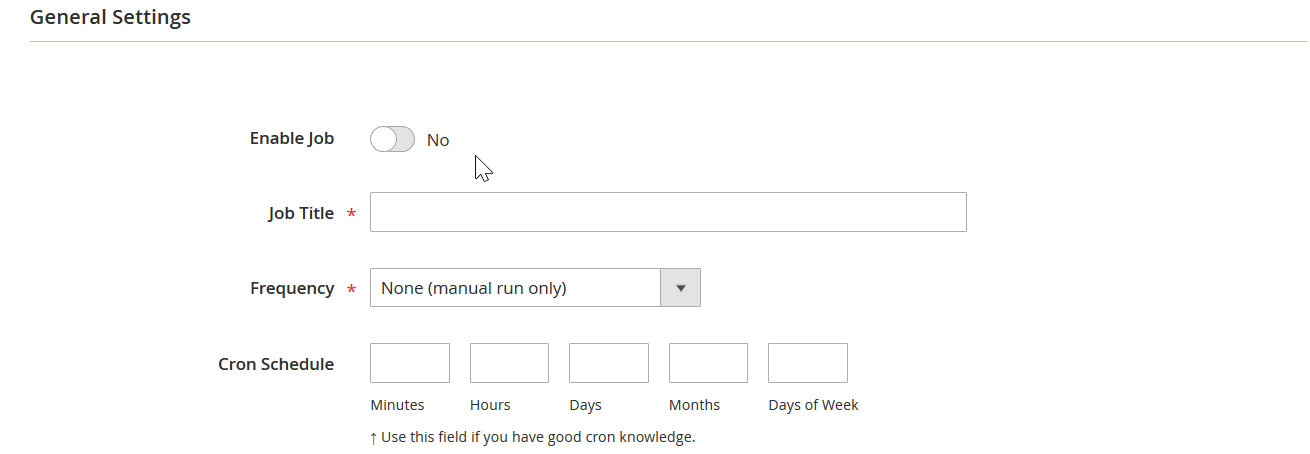
Events
Event-based triggers are the second huge improvement provided by the Improved Import & Export extension which is even more useful in terms of the Magento 2 QuickBooks integration. Use the following algorithm to automate data transfers between the two systems:
- Create a trigger;
- Connect it to an event;
- Link an action to a trigger to launch it automatically.
Thus, transferring data to QuickBooks with the help of a trigger dramatically simplifies the integration. As mentioned above, this feature enables data exchanges in real time. When something happens in Magento 2, the add-on transfers the corresponding data to the accounting platform. For example, a customer makes creates an account on your website; the extension automatically transfers a new customer to QuickBooks. In the case of QuickBooks Integration Add-On for Improved Import & Export, you don’t have to create this scheme manually! Follow the link below for more information regarding triggers: How to Run Magento 2 Import or Export After Specific System Event or Process.
Advanced Mapping Features
Map QuickBooks attributes to ones used in Magento 2 to enable automated data transfers between the two systems. The Improved Import & Export Magento 2 extension radically simplifies the QuickBooks Magento 2 integration in terms of attributes and their values due to the following features:
Mapping Presets
Use our module to solve the problem of different attribute standards without headaches and enable the Magento 2 QuickBooks integration in the most intuitive way with mapping presets – predefined mapping schemes that eliminate manual attributes matching.
Our extension performs all the necessary stages automatically. It analyzes the input data file transferred from QuickBooks, discovers third-party attributes, and matches them to the ones used in Magento. The same algorithm is applied to export processes. Magento 2 QuickBooks Integration Add-One for Improved Import & Export knows what attributes are required by the accounting system and modifies ones utilized in Magento according to the requirements of the external platform. You only need to select a matching scheme suitable for your migration. The process is shown below:
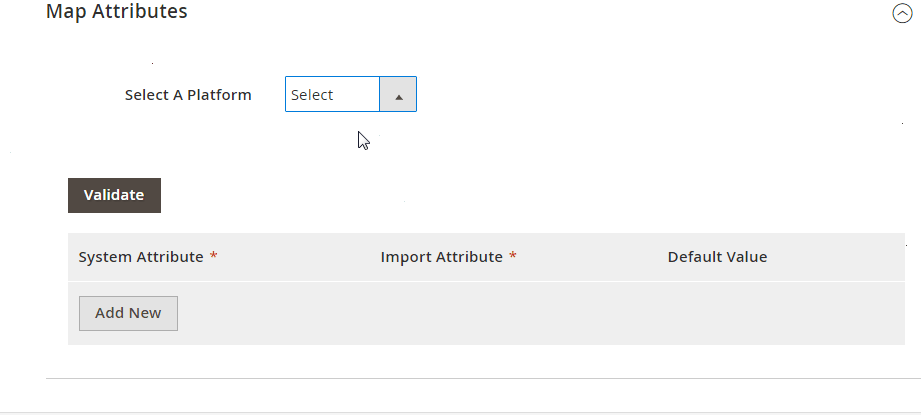
Matching Interface
Importing/exporting data between QuickBooks and Magento 2 can also be based on manual attributes mapping right in the Magento admin! The Improved Import & Export module provides a unique matching interface which offers full control over the process: you specify external (internal) attributes and link them to the corresponding internal (external) ones in a particular grid enabling the data transfer. Here is how everything works:
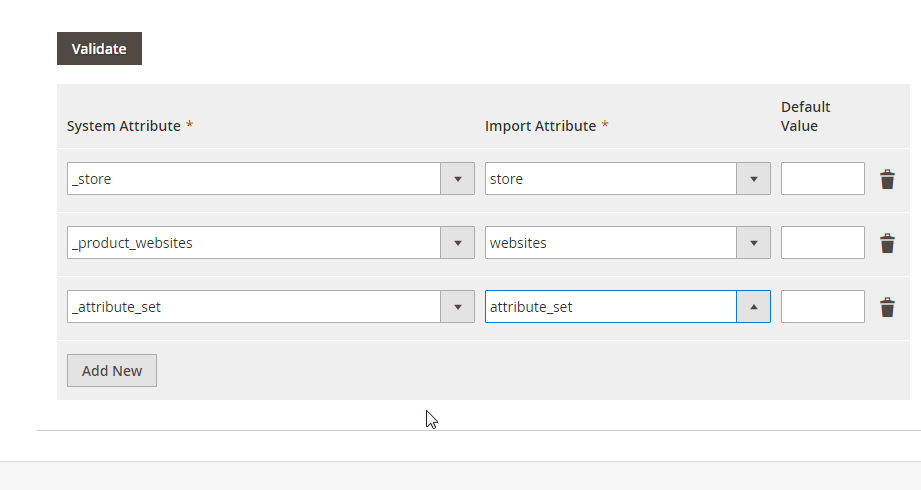
Attribute Values Mapping
The Improved Import & Export Magento 2 extension offers a separate interface for attribute values mapping that provides the ability to simplify the Magento 2 QuickBooks synchronization and automate it entirely. With our plugin, third-party designations will no longer interrupt transfers since you can choose an external value from QuickBooks and specify the internal one from Magento 2 as a replacement. Repeat the procedure until all third-party designations are mapped to ones utilized in Magento 2. Note that the created schemes are saved and applied for further updates. For details, read this article: Attribute Values Mapping.
Attribute Values Editing
If attribute values mapping is not enough, streamline attribute values editing while transferring data from QuickBooks or other systems to Magento 2. It is another feature that makes the integration more merchant-friendly. To modify attribute values in bulk, use the following rules:
- Add a prefix to multiple attribute values;
- Add a suffix to multiple attribute values;
- Split multiple attribute values;
- Merge multiple attribute values.
Note that you can combine them and create conditions increasing the efficiency of the applied changes. Don’t miss the flexibility of our module! For further information, follow this link: How to Modify Attribute Values During Import and Export in Magento 2.
Category Mapping
Category mapping is a feature developed for product data transfers from any systems to Magento 2. It lets merchants match external categories to ones used internally reducing the number of difficulties that usually occur when products are transferred from other platforms to Magento 2. The Improved Import & Export module allows mapping external product categories to ones used in your catalog as follows:
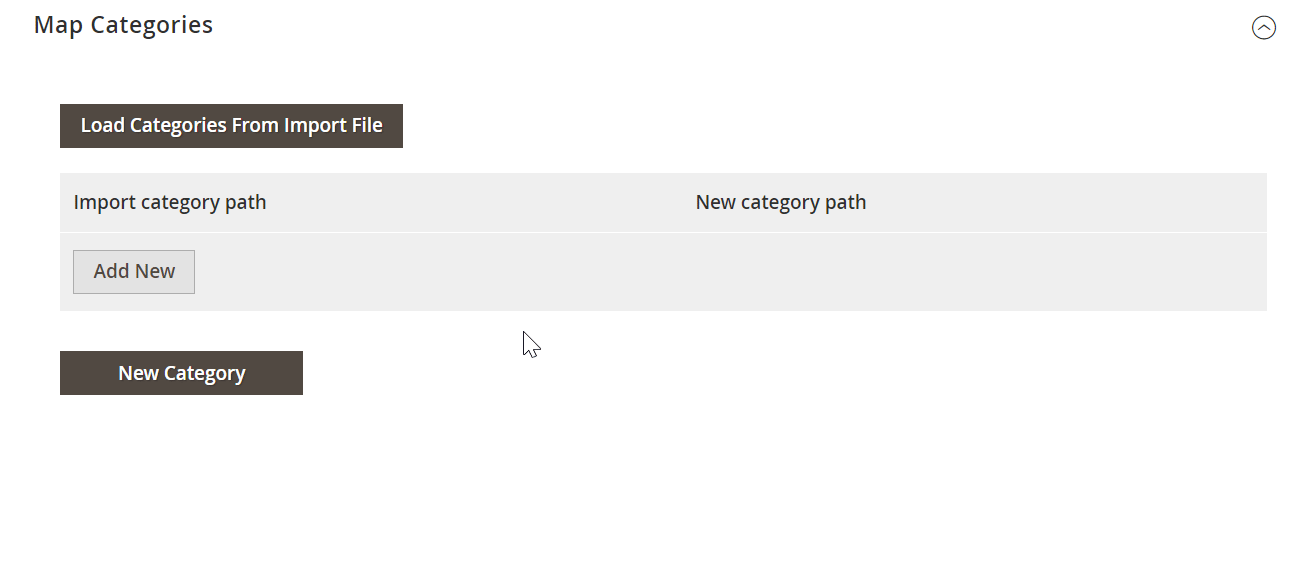
To create new categories right in the import job, choose a parent category and specify a new one that will be generated automatically. Thus, the extension will link products to it during the import process. If your Magento 2 website doesn’t include a category from an imported file, it’s no longer a problem. You can find more information about this feature here: Category Mapping.
Attributes On The Fly
And if a data file provided from an external system lacks attributes, the Improved Import & Export Magento 2 extension lets you create them on the fly via the following general form:
Attribute|attribute_property_name:attribute_property_value|…
The feature is described here in more detail: Product attributes import.
Extended Connectivity Options
As for the extended connectivity options, they are designed to improve all data transfers as well as make the seamless Magento 2 QuickBooks integration possible. With Improved Import & Export, you can use multiple file formats and two alternative ways of transferring data between your e-commerce store and external systems. As for QuickBooks, the REST API standard is used.
Multiple File Standards
The Magento 2 QuickBooks integration cannot be established based on data files, but you should know that the Improved Import & Export extension supports CSV, XML, JSON, ODS, and Excel. You can use them for other integrations.
Another feature that radically simplifies data transfers between Magento 2 and other platforms is support for compressed data. Our module can unpack file archives automatically while the default tools work with uncompressed CSV files only!
Multiple File Sources
The following file sources can be leveraged to import and export data files between Magento 2 and external systems:
- FTP/SFTP. Transfer data files using a local or remote server.
- Dropbox. Use a Dropbox account to establish a connection between the two systems. Alternatively, you can rely on Box, OneDrive, Google Drive, iCloud, and Amazon Drive.
- URL. A direct URL can be used to import a data file as well.

Alternative Ways of Import & Export
As for the alternative ways of import and export, they are not represented in Magento 2 by default. However, direct API connections enable the Magento 2 QuickBooks integration. As we’ve just mentioned, the Improved Import & Export extension provides the ability to leverage REST for the Magento 2 QuickBooks integration as well as other APIs if necessary. In addition to the standard mentioned above, our extension supports SOAP and GraphQL.
Note that all API connections are fully compatible with the extension’s features. As a result, you can leverage mapping, schedules, and attributes on the fly while transferring data from Magento 2 to QuickBooks via REST API.
As for the intermediary services, the extension allows using Google Sheets, Office 365 Excel, and Zoho Sheet. Although they cannot be utilized in the QuickBooks Magento 2 integration, you can streamline them to connect to other systems. The following image shows how to use Google Sheets to move data to Magento 2:
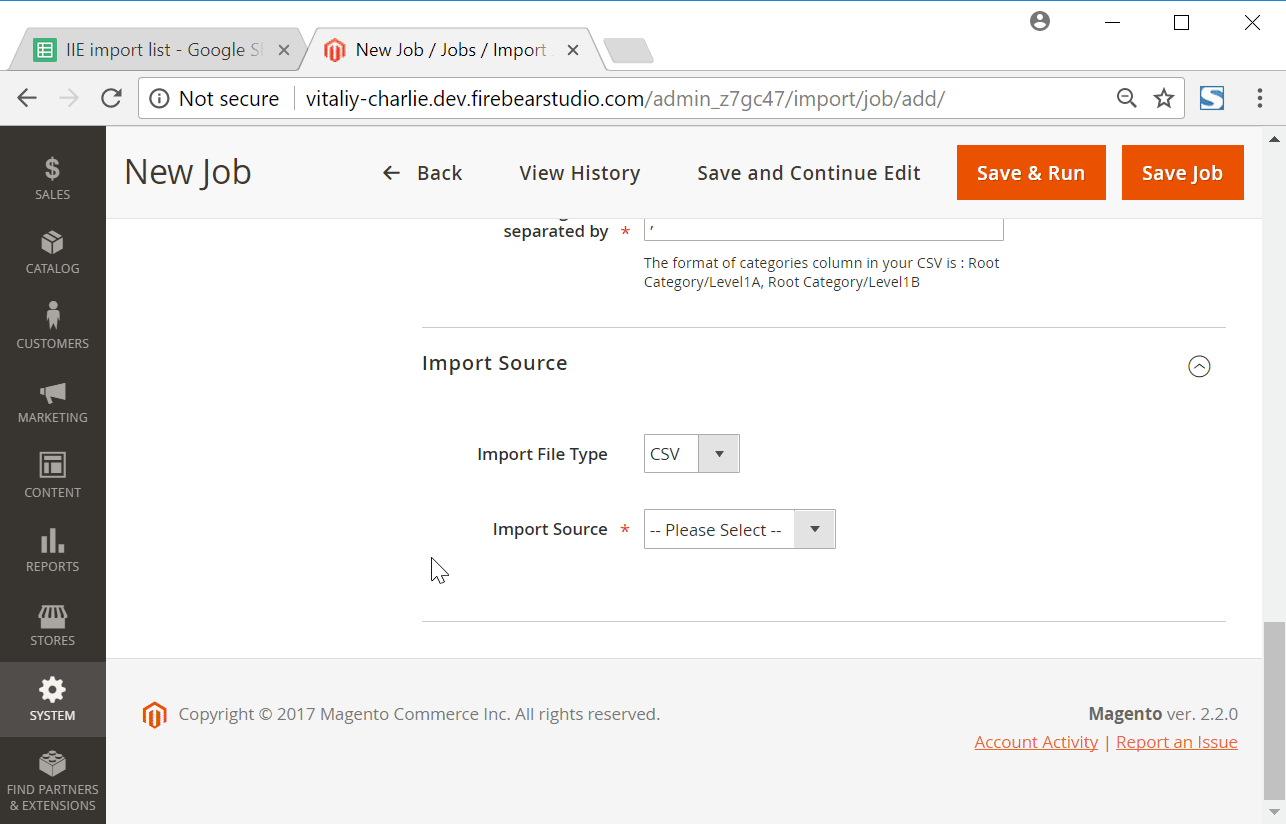
The video below displays our extension in action:
Final Words
QuickBooks offers a set of accounting tools for small businesses that dramatically simplify your daily duties. With the help of Improved Import & Export, you can seamlessly integrate your Magento 2 store with the platform transferring all the necessary data in a fully automated manner. For more information about the Magento 2 QuickBooks integration based on our extension, follow the link below and contact the support:
Get Improved Import & Export Magento 2 Extension

